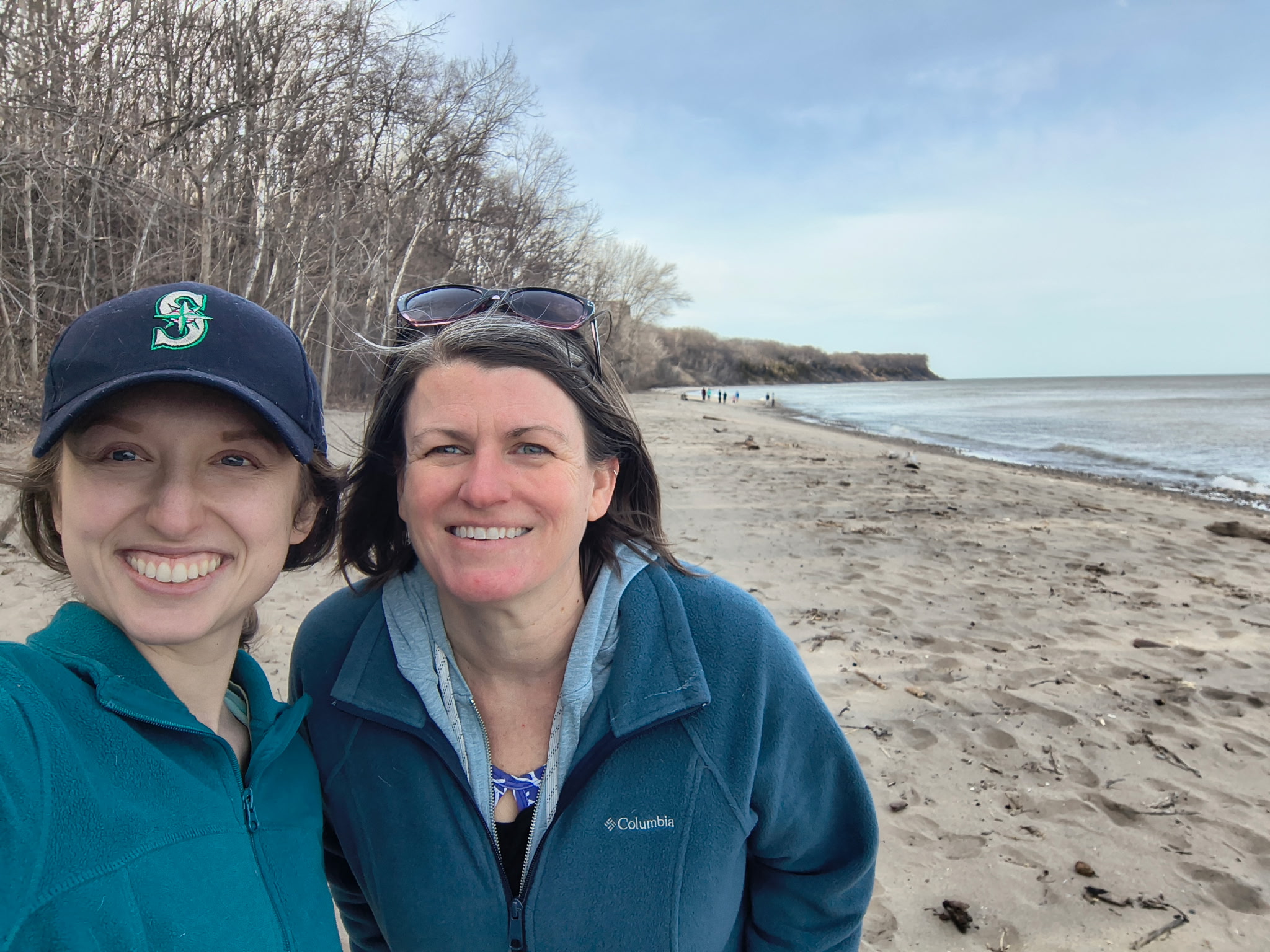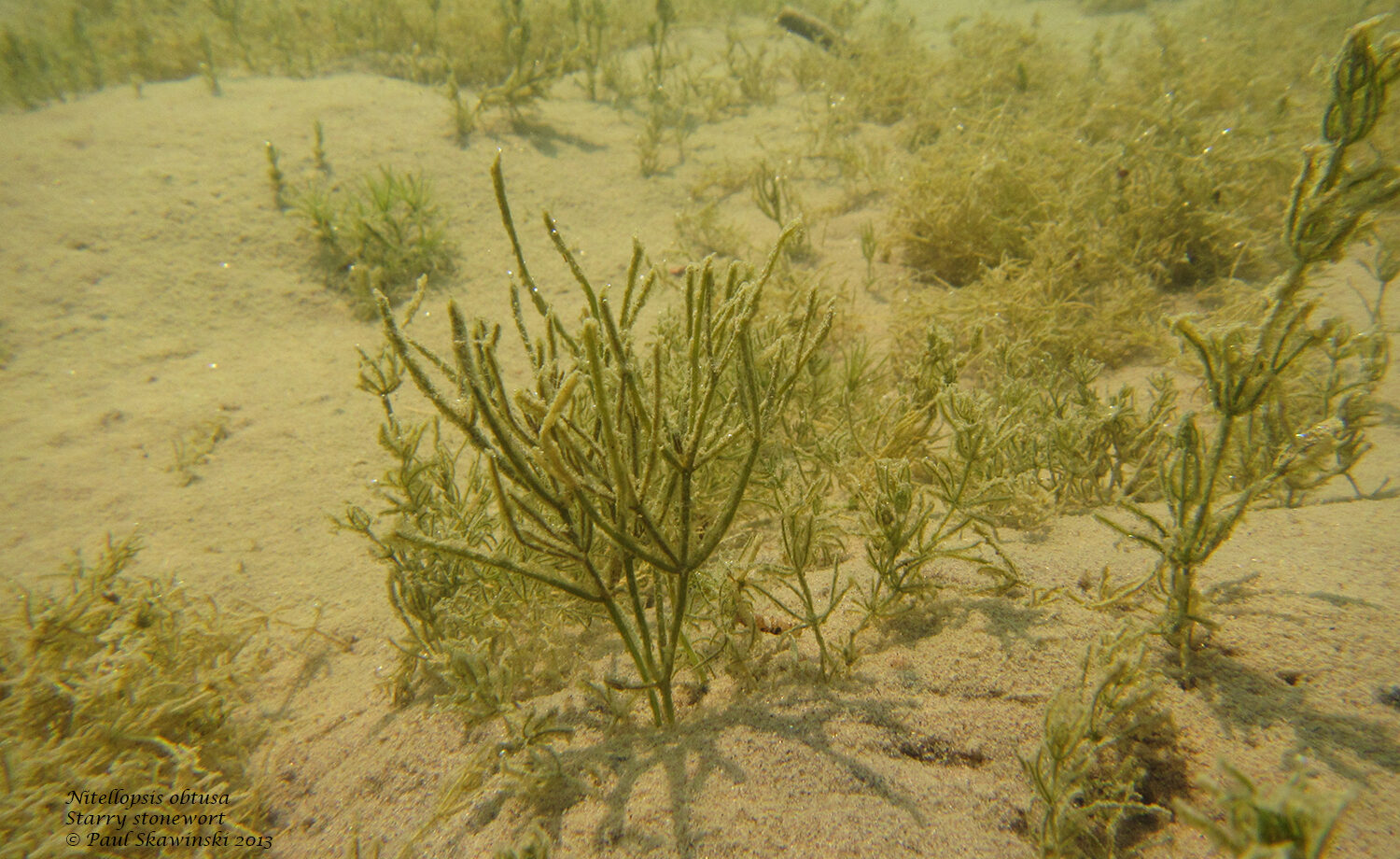After 11 years as the director of the University of Wisconsin–Madison Aquatic Sciences Center, Jim Hurley will retire on Oct. 13.
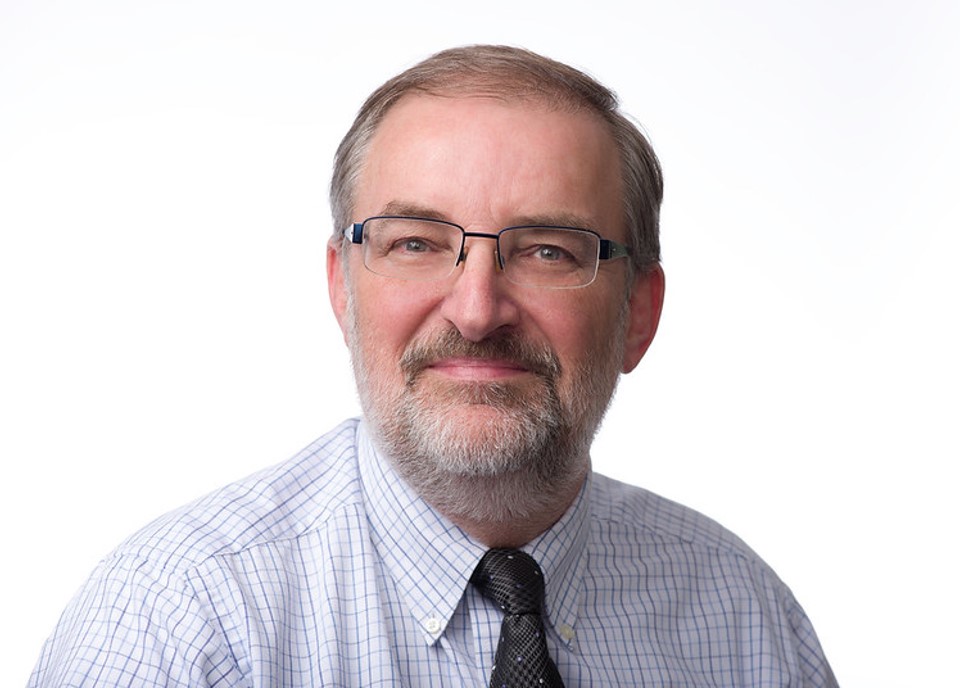
Jim Hurley, director of the Aquatic Sciences Center. Photo credit: Wisconsin Sea Grant
Hurley oversees both Wisconsin Sea Grant and the Water Resources Institute, two federal-state partnership programs that support research, education and outreach for the protection and sustainable use of Wisconsin’s water resources. Under his leadership, both programs have addressed some of Wisconsin’s most pressing water issues—PFAS in drinking water, rising levels of radium in groundwater, coastal erosion, flooding and so much more—and provided research opportunities for the next generation of water professionals.
Jon Pennock, director of the National Sea Grant College Program, said Hurley’s leadership is one reason why Wisconsin Sea Grant is the well-respected program it is today.
“Following in the footsteps of his predecessor, Anders Andren, Jim has led Wisconsin Sea Grant to preeminence in the Sea Grant network of 34 programs across all of our coastal and Great Lakes states, Puerto Rico and Guam. He has done so with a combination of skill, tenacity, humility and compassion that serves as an inspiration to all of us in Sea Grant who have worked with him,” said Pennock.
Hurley, an expert on mercury in the Great Lakes, also serves as a professor in the Department of Civil and Environmental Engineering. He’s published over 100 research articles and worked on the U.S. Environmental Protection Agency advisory board that developed a risk assessment for mercury emissions.
His career and leadership philosophy reflect the importance of multidisciplinary research—and sharing that research outside the university with communities across the state.
“The Wisconsin Idea is not just a slogan, it’s a way of life,” said Hurley. “It defines our Sea Grant and Water Resources institutes’ missions, and it’s embraced by our researchers, outreach specialists and educators.”
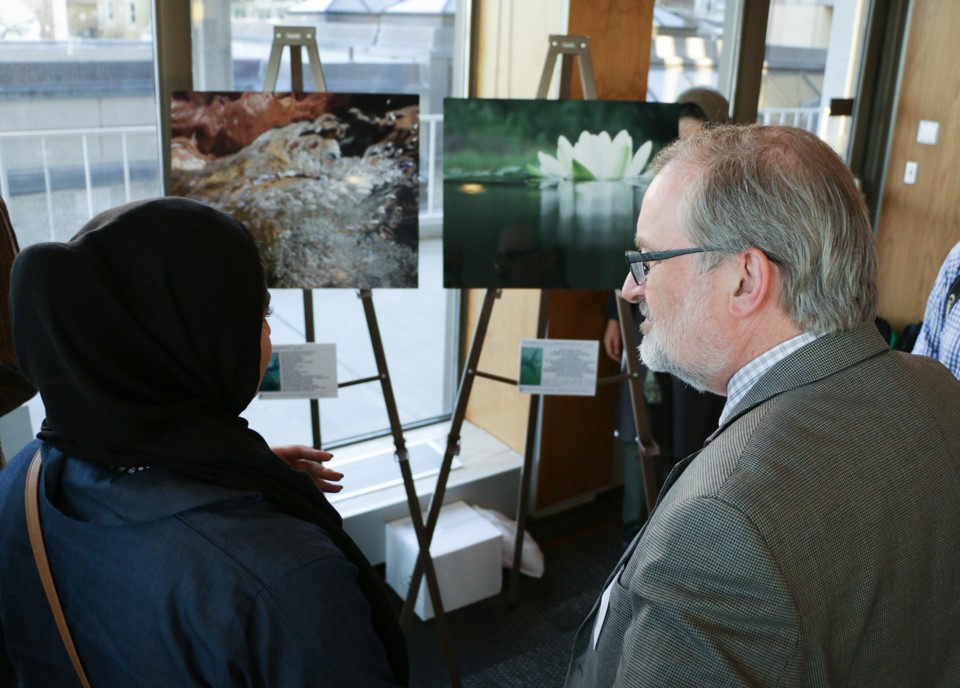
Hurley talks with a student photographer at an event showcasing the Zaaga’igan Ma’iinganag Lakewolves program. Photo credit: Wisconsin Sea Grant
As director, Hurley also prioritized research experiences for undergraduates, launching what would eventually become the Freshwater@UW Summer Research Scholars Program, an initiative about which he is proud.
He served on the steering committee of the Freshwater Collaborative, a state-supported partnership between 13 UW System schools that funds water education and research opportunities for students.
Marissa Jablonski, the executive director of the Freshwater Collaborative, said Hurley was a strong advocate who helped secure legislative funding for the program. Hurley, quite literally, always answered the call.
“I could call him on less than a day’s notice saying, ‘There’s an event tonight in Madison; I simply cannot be there. I wish I could, I’m double-booked, the legislators will be there—is there any way you can go?’ And he would not even take a breath and say, ‘I’ll be there.’”
When it was easy to get bogged down in the details of funding and organizing multi-institution collaborations, Hurley always saw the big picture.
“He was the steering committee member who could easily zoom out in these really difficult conversations and say, let’s keep a perspective on the UW system, Wisconsin Idea and let’s see how we all fit together,” said Jablonski.
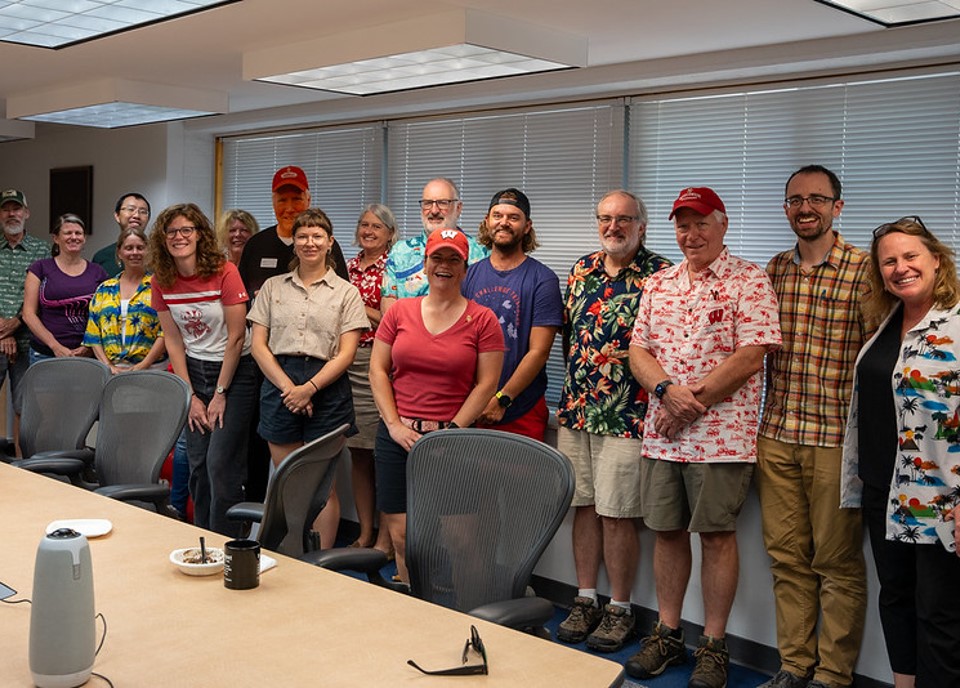
Hurley celebrates James “Frizby” Grandt’s retirement with colleagues. Photo credit: Wisconsin Sea Grant
Pennock also lauded Hurley’s ability to bring perspective to big, thorny problems.
“I have seen Jim lead his staff and rally the Sea Grant network during his time as president of the Sea Grant Association. Each time, people with sometimes different views and approaches ultimately followed his lead, supported his efforts and had his back because everyone knew that Jim understood the big picture and complex landscape of each issue and, as importantly, always had their backs,” said Pennock.
Hurley, of course, is quick to redirect the warmth of such high praise to his colleagues.
“Over the past few years, my respect for our ASC staff has continued to grow. They accepted the challenges posed by the pandemic and continued to provide excellent service to Wisconsin citizens. More importantly, they also responded to national social unrest by committing to enhancing diversity, inclusivity, environmental justice and access in all their programming,” said Hurley.
“I’m proud, as an administrator, to have played a small part working alongside a group like that.”



